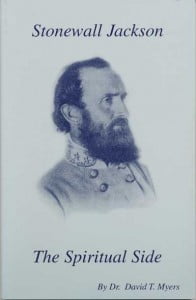This Day in Presbyterian History:
Freedom From Terror Comes with a Cost
Where were you on September 11, 2001? This has become this decade’s most asked question. Where were you when the Twin Towers of the Trade Center were destroyed by terrorists? It has replaced the question of “where were you when President John F. Kennedy was shot in Dallas, Texas?” Or even a generation earlier, “where were you when Pearl Harbor was attacked by the Japanese on December 6, 1941?” Everyone has an answer to all of these questions, including the first one. And usually there is a story to go along with it as well.
On September 2, 2011, the Glasglow Presbyterian Church of the Presbyterian Church in America, decided to do more than ask the familiar question. They decided to dedicate that Lord’s Day, the Sunday before this terrorist attack, with a display of small American flags on their church property. Located on the busiest highway in the state of Delaware, the sixty-two hundred flags were a heart-warming, yet solemn remembrance of the U.S. citizens and other nations who have been lost to the War on Terror thus far, particularly in the nations of Iraq and Afghanistan, where our young warriors have been fighting that terror network. As the senior pastor of this congregation, Dr. Chuck Betters, said, “Freedom from terror comes at a cost.”
But the church congregation didn’t stop with just an outdoor memorial. Using dozens of volunteers, they were able to mail a package to every family who had lost a loved one in the decades long conflict. In the package was a personal note, and an audio tape entitled “The Ultimate Sacrifice,” which deals with the tender subject of coping with the loss of a loved one.
The following Sunday, on September 11, 2011, Dr. Better preached a sermon on this tragic day which has been seared in our consciences forever.
Words to live by: The word “remember” is a word which is used often in Scripture. One of the Ten commandments, which dealt with the Sabbath Day, began with “Remember the Sabbath day to keep it holy.” The inspired writers of the New Testament are always telling us to “remember this” or “remember that,” usually with regards to an exhortation he has given them at an earlier time. In Acts 20:35, we are told to “remember the words of the Lord Jesus,” for example. This is one of the purposes of this whole devotional guide, to remember the faithful Christians and events who and which have gone before, that we will either imitate the good deeds and/or be warned against the bad actions. Remember!
Through the Scriptures: 2 Chronicles 7 – 9
Through the Standards: The freedom of worship
WCF 21:6
“Neither prayer, nor any other part of religious worship, is now, under the Gospel, either tied unto, or made more acceptable by any place in which it is performed, or towards which it is directed: but God is to be worshiped everywhere, in spirit and truth; as, in private families daily, and in secret, each one by himself; so, more solemnly in the public assemblies, which are not carelessly or willfully to be neglected, or forsake, which God, by His Word or providence, calls thereunto.”


